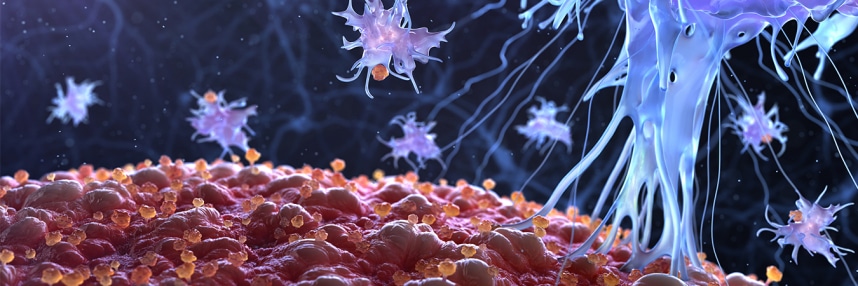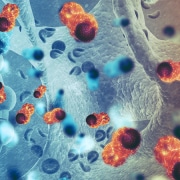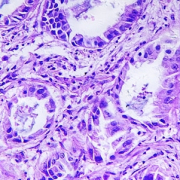NHS patients to get ‘early access’ to new RNA cancer vaccines
NHS cancer patients will be able to access emerging RNA-based immunotherapies thanks to a newly announced partnership between BioNTech and the government
NHS cancer patients will get early access to new RNA vaccines following last month’s announcement between the UK government and the German biopharmaceutical company BioNTech. The aim of the collaboration is to deliver 10,000 therapies, personalised to patients, over the next seven years.
“The collaboration will cover various cancer types and infectious diseases”, explained BioNTech chief executive officer Professor Uğur Şahin, adding that patients will be provided “early access to our suite of cancer immunotherapies”.
This agreement builds on the success that BioNTech achieved two years ago during the coronavirus 19 pandemic; it was the first to have its Covid-19 vaccine effectively trialled and deployed to the general public. Although it was not the first-ever approved RNA-based therapeutic (the honour of which goes to patisiran, which we covered here), it became notable as the first mRNA vaccine.
The UK was the first in the world to administer BioNTech’s mRNA vaccine outside of clinical trial. “The UK successfully delivered Covid-19 vaccines so quickly because the NHS, academia, the regulator and the private sector worked together”, said Professor Şahin. “Today’s agreement shows we are committed to do the same for cancer patients.”
- Understand: How an mRNA vaccine works
RNA vaccines as a type of cancer vaccine
Cancer vaccines are a form of immunotherapy. They work by getting the body’s own immune system to recognise and destroy cancer cells. Several different types exist – among which include RNA vaccines – and are developing areas of cancer therapies.
Cancer vaccines differ from the vaccines against microbes, such as viruses, where the same treatment can be given to millions of people. Cancer vaccines, on the other hand, must be personalised because each cancer is unique.
By engineering the vaccine to contain instructions based on the patient’s own cancer, an immune response can be provoked against it. “We hope that by finding out how to vaccinate people against their own cancers we can further improve their chances of staying cancer-free,” said NHS England’s clinical director for cancer Professor Peter Johnson.
Boosting cancer vaccine access
A new ‘cancer vaccine launch pad’ will be responsible for managing access to the new treatments. It will be jointly set up by NHS England and Genomics England, and is set to work in parallel with the existing NHS Genomic Medicine Service.
The launch pad will also be quickly identifying patients, across multiple cancer types, who could benefit from joining clinical trials. These trials could start as early as this autumn. If the clinical trials are successful, it is envisaged that the treatments will become part of standard cancer care pathways.









